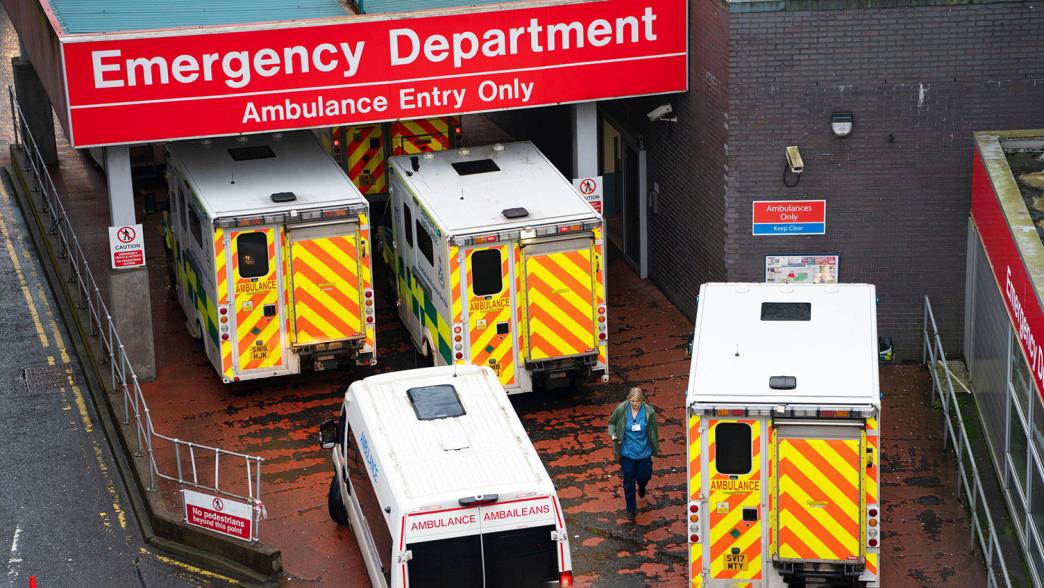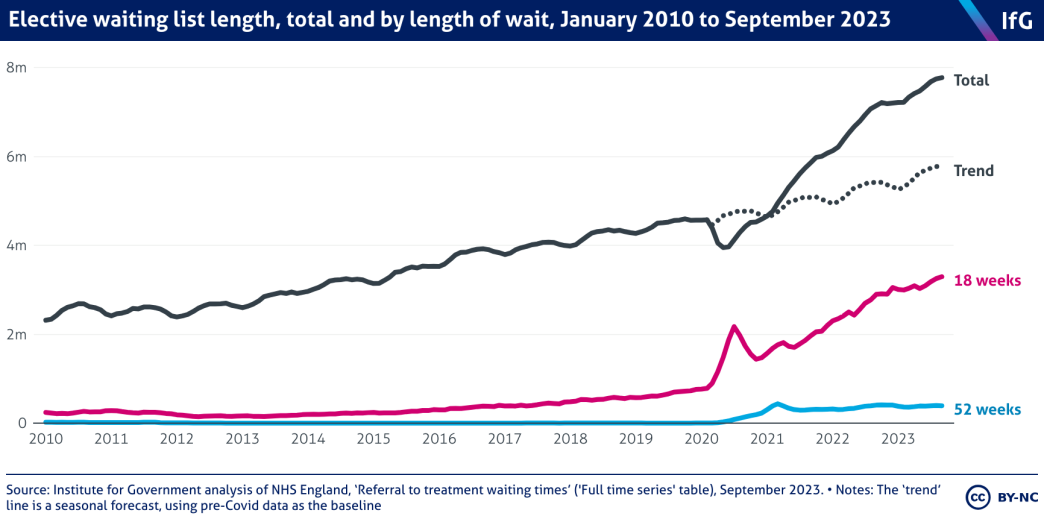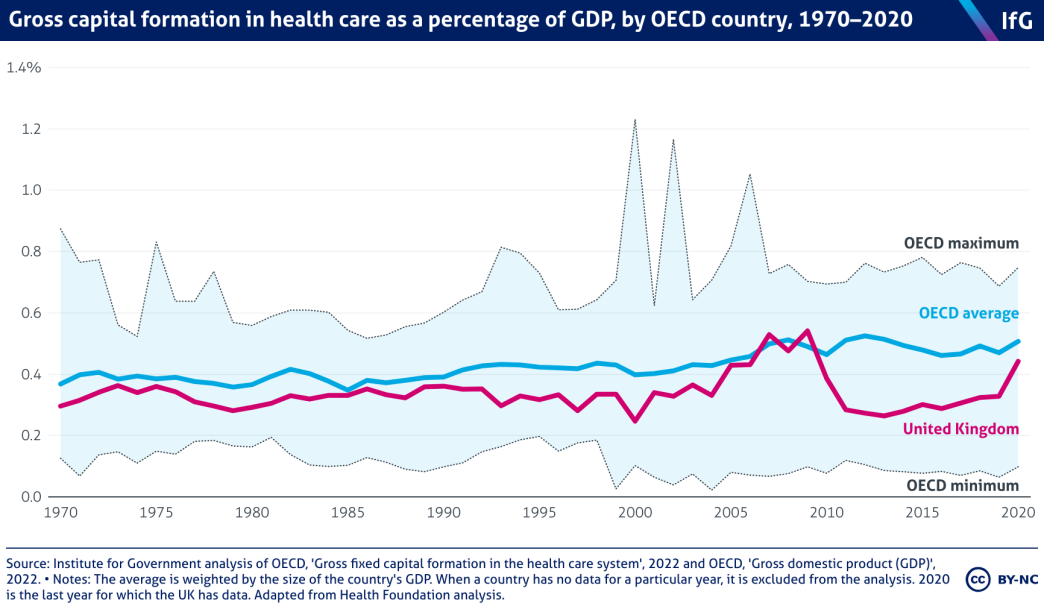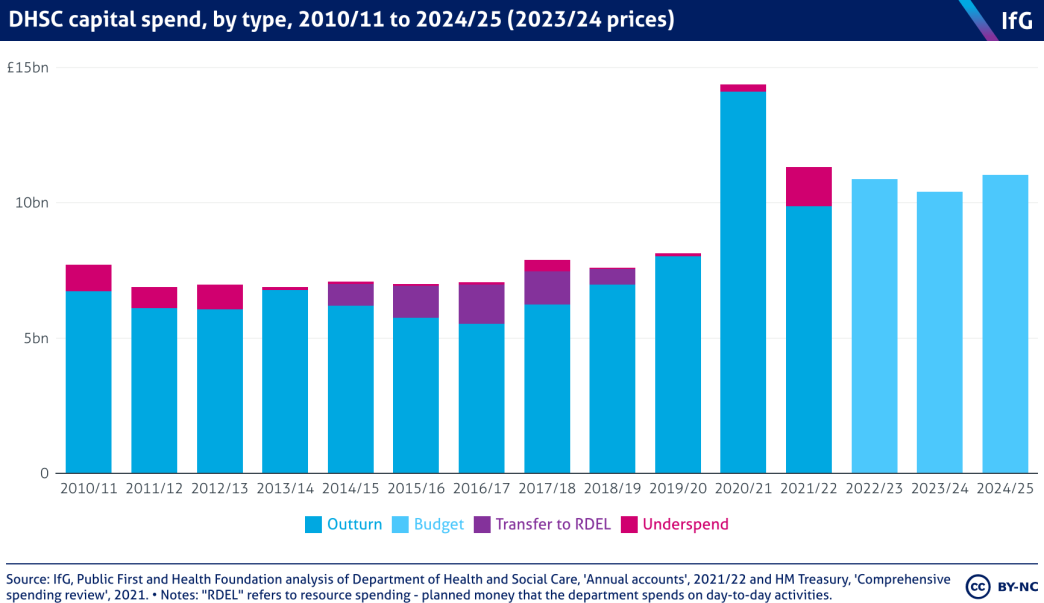Forcing the NHS to reallocate capital spending is a false economy
The Sunak government is still choosing short-term fixes over long-term solutions.

The government’s approach to funding the £1bn deficit that has arisen from strike action shows that it still prioritises the short term over the long term, writes Stuart Hoddinott
When the NHS asked the government for an additional £1 billion to close the gap in its finances, primarily due to higher costs and lost income associated with strike action, the government came up with £300m. Of that, £200m was previously announced for winter “resilience”, 15 https://www.gov.uk/government/news/200-million-to-boost-nhs-resilience-and-care-this-winter meaning just £100m was genuinely new money. The NHS has reallocated a further £500m from its 'tech and potentially' capital budget, 16 https://www.hsj.co.uk/finance-and-efficiency/electives-and-capital-to-be-cut-after-treasury-refuses-1bn-strike-cash-plea/7035934.article meaning that there £800m available in total – £200m short of what the NHS estimated it would need. That shortfall in funding comes with a number of costs – to the NHS, and potentially to Rishi Sunak.
Worse NHS performance will harm Sunak’s re-election hopes
Reassigning the government’s £200m winter resilience funding – the main aim of which was to improve performance of urgent and emergency care in the coming months – will likely mean worse performance in the near future. That is worrying for a service that experienced its worst winter on record last year, and will likely impose a political cost on the government; queuing ambulances make for bad headlines.
Reducing the backlog is one of the government’s top priorities – and Sunak in January made bringing down waiting lists before the next election one of his five pledges for government – but the NHS has now reduced its target for elective activity in 2023/24 from 107% 20 https://www.england.nhs.uk/wp-content/uploads/2023/01/PR00021-elective-recovery-fund-technical-guidance.pdf of 2019/20 levels to 103%. 21 https://www.england.nhs.uk/long-read/addressing-the-significant-financial-challenges-created-by-industrial-action-in-2023-24/

Since January the backlog has grown by more than 559,000 and, even before yesterday’s announcement, it wasn’t expected to start falling before next summer. 22 https://www.health.org.uk/waiting-list Reducing the elective activity target virtually guarantees that the waiting list will be hundreds of thousands longer at the next election than it was when Sunak made his pledge.
The NHS can ill-afford to spend less on capital
Even more concerning is the reallocation of up to £0.5bn (out of £12bn) of DHSC’s 2023/24 capital budget.
The UK’s spending on health capital has always been low compared to other countries; between 1970 and 2020 the UK government only exceeded the OECD average investment in health capital in two years, 2007 and 2009. But even by those low standards, the 2010s were particularly poor.

Productivity suffers when it is harder for staff to do their job, and historical underinvestment is harming performance. The maintenance backlog stood at a record high of £10.2bn at the end of 2021/22, with hospitals sometimes forced to close parts of their estate due to things like sewage leaks. 24 http://www.ft.com/content/eff98439-44ba-43a3-b9af-3ce796002c24 There is insufficient equipment in hospitals – the UK has half the number of CT scanners and MRI machines compared to the OECD average – and IT systems are not up to scratch.
If the NHS is to return to, and eventually exceed, pre-pandemic productivity levels, the government must take capital investment seriously. The NHS has been very successful at recruiting many more ‘front line staff’ to the service, with approximately 20% more doctors and nurses in hospitals in July 2023 than March 2019. But the government risks wasting the substantial investment in that workforce if it does not also provide a modern, functioning estate, sufficient machines for those staff to work with, and effective IT systems that allow for communication and coordination across a fragmented service. Forcing the NHS to reallocate its capital budget shows once again that the government is short-sighted when it comes to capital investment.
Short-term thinking still reins in Westminster
The latest spending decision is far from unusual in the way that the government manages public services. In Performance Tracker 2023, produced in partnership with CIPFA, we argued that short-term decision making – both in terms of funding, but also in terms of policy making – has contributed to poor service performance.
Indeed, reallocation of capital budgets to day-to-day spending happened frequently in the NHS in the latter half of the 2010s, as the service struggled with tight spending settlements. That pattern has abated in recent years and in evidence to the Public Accounts Committee (PAC) in September this year Julian Kelly (the chief financial officer for NHS England) claimed that “we are absolutely seeking to maintain the increase in investment in capital that has been made available”. That promising trend has now been reversed.

None of this is inevitable. The NHS’s in-year deficit has in part become so large because strikes in the service have dragged on far longer than needed, partly fuelled by the government’s combative approach. Productivity has fallen in hospitals due to insufficient capital investment over decades and particularly sharp cuts in the decade before the pandemic. Now elective recovery is likely to stall and the winter crisis will likely be worse due to this latest government decision.
This month’s autumn statement is a chance for the government to right some of these wrongs. The government is due to make announcements on public sector productivity, and both the prime minister and the health and social care secretary have made much of the potential of technology, including AI, to improve NHS performance. The merits of these claims are debateable. But raiding capital budgets will certainly make it harder for the NHS to invest in these areas. As we argued in Performance Tracker, improving productivity requires stable policy making and funding. The government is currently providing neither.
- Keywords
- NHS Autumn statement Health Public spending
- Political party
- Conservative
- Administration
- Sunak government
- Department
- Department of Health and Social Care
- Public figures
- Rishi Sunak Jeremy Hunt
- Tracker
- Performance Tracker
- Publisher
- Institute for Government